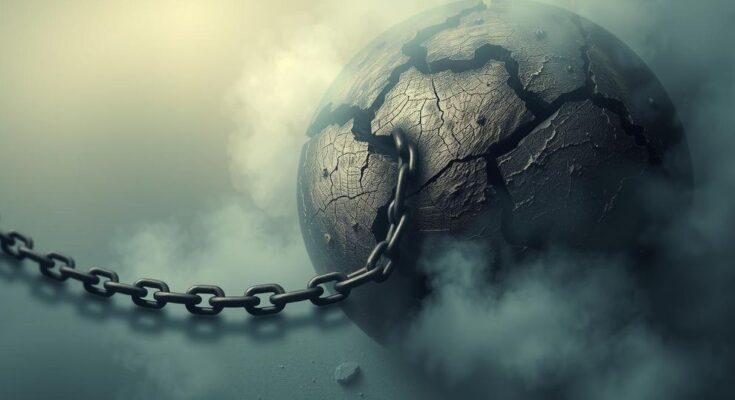UN human rights chief Volker Türk warns that without international intervention, the violence in eastern DRC could worsen. He reports nearly 3,000 killings since January from M23 attacks. The mineral-rich regions experience continued instability, prompting calls for investigations into human rights violations. Key figures highlight the severe humanitarian crisis and sexual violence resulting from the conflict, urging immediate international assistance.
UN human rights chief Volker Türk expressed deep apprehensions regarding the escalating violence in the eastern Democratic Republic of the Congo (DRC), attributing this to the Rwanda-backed M23 offensive. During a Special Session of the Human Rights Council in Geneva, he stated, “If nothing is done, the worst may be yet to come, for the people of the eastern DRC, but also beyond the country’s borders.” Since late January, the conflict has resulted in nearly 3,000 fatalities and thousands of injuries due to attacks by the M23 and their allies.
Violence has persisted in eastern DRC’s mineral-rich regions, which have faced instability for decades, exacerbated by the proliferation of armed groups. The M23, dominated by majority-Tutsi fighters, has seized territories in North Kivu near Goma, further threatening regions like South Kivu and the city of Bukavu. As the conflict rages on, Member States of the UN are contemplating establishing a mission to investigate severe human rights violations in the areas impacted by the fighting.
Mr. Türk highlighted notable acts of violence, including the bombing of hospitals in Goma and a prison break that led to the tragic rape and murder of numerous female inmates. He condemned the ongoing sexual violence, remarking, “I am horrified by the spread of sexual violence, which has been an appalling feature of this conflict for a long time. This is likely to worsen in the current circumstances.”
Bintou Keita, the Special Representative in the DRC and head of the peacekeeping mission (MONUSCO), confirmed that the plight in Goma is “catastrophic,” with dead bodies on the streets and the youth facing forced recruitments. She stressed the rising health risks from conflict, citing potential cholera outbreaks and interruptions to children’s education due to violence. Ms. Keita urged the international community to advocate for humanitarian assistance to Goma.
In response, DRC Communications Minister Patrick Muyaya Katembwe condemned foreign support for armed groups, particularly Rwanda’s backing of the M23, accusing it of fostering violence in the region for over three decades. However, Rwanda’s Ambassador to the UN, James Ngango, dismissed these accusations, claiming that a significant military threat from DRC was imminent and detailed the stockpiling of weapons near Rwanda’s border.
Mr. Türk urged the need for international awareness and action to alleviate the humanitarian crisis, stating, “The population in the eastern DRC is suffering terribly, while many of the products we consume or use are created using minerals from the east of the country. We are all implicated.” He called for collective efforts to address the enduring conflict and its widespread ramifications.
The Democratic Republic of the Congo has long been embroiled in violence primarily due to its rich mineral resources, which have attracted various armed groups and foreign interventions. The M23, a rebel group that has garnered support from Rwanda, has further intensified the conflict, particularly in the eastern regions of North Kivu and South Kivu. The ongoing violence has led to significant displacement, numerous human rights violations, and humanitarian crises, prompting international concern and calls for intervention.
The situation in the eastern Democratic Republic of the Congo remains dire, with ongoing hostilities exacerbating humanitarian woes. The warnings from UN officials highlight the need for urgent international action to address the violence perpetuated by armed groups like the M23 and to stem the tide of escalating human rights abuses. A coordinated global effort is necessary to bring peace and stability to the affected regions and support the suffering population.
Original Source: news.un.org




